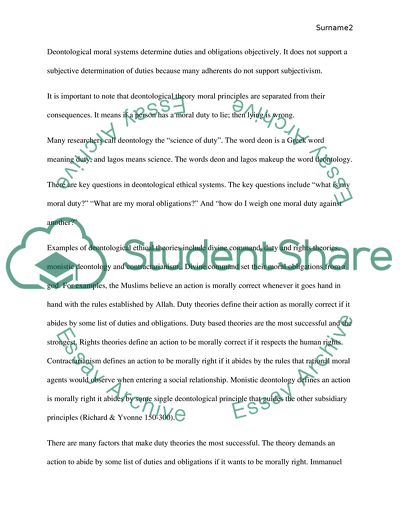Cite this document
(Deontological Moral Systems: Principles and Absolute Conclusions Essay Example | Topics and Well Written Essays - 1750 words, n.d.)
Deontological Moral Systems: Principles and Absolute Conclusions Essay Example | Topics and Well Written Essays - 1750 words. https://studentshare.org/philosophy/1652493-deontological-moral-systems-principles-and-absolute-conclusions
Deontological Moral Systems: Principles and Absolute Conclusions Essay Example | Topics and Well Written Essays - 1750 words. https://studentshare.org/philosophy/1652493-deontological-moral-systems-principles-and-absolute-conclusions
(Deontological Moral Systems: Principles and Absolute Conclusions Essay Example | Topics and Well Written Essays - 1750 Words)
Deontological Moral Systems: Principles and Absolute Conclusions Essay Example | Topics and Well Written Essays - 1750 Words. https://studentshare.org/philosophy/1652493-deontological-moral-systems-principles-and-absolute-conclusions.
Deontological Moral Systems: Principles and Absolute Conclusions Essay Example | Topics and Well Written Essays - 1750 Words. https://studentshare.org/philosophy/1652493-deontological-moral-systems-principles-and-absolute-conclusions.
“Deontological Moral Systems: Principles and Absolute Conclusions Essay Example | Topics and Well Written Essays - 1750 Words”. https://studentshare.org/philosophy/1652493-deontological-moral-systems-principles-and-absolute-conclusions.


